ROBOCOP 2 (1990)
Cyborg law enforcer RoboCop returns to protect the citizens of old Detroit but faces a deadly challenge when a rogue OCP member secretly creates a new, evil RoboCop 2.
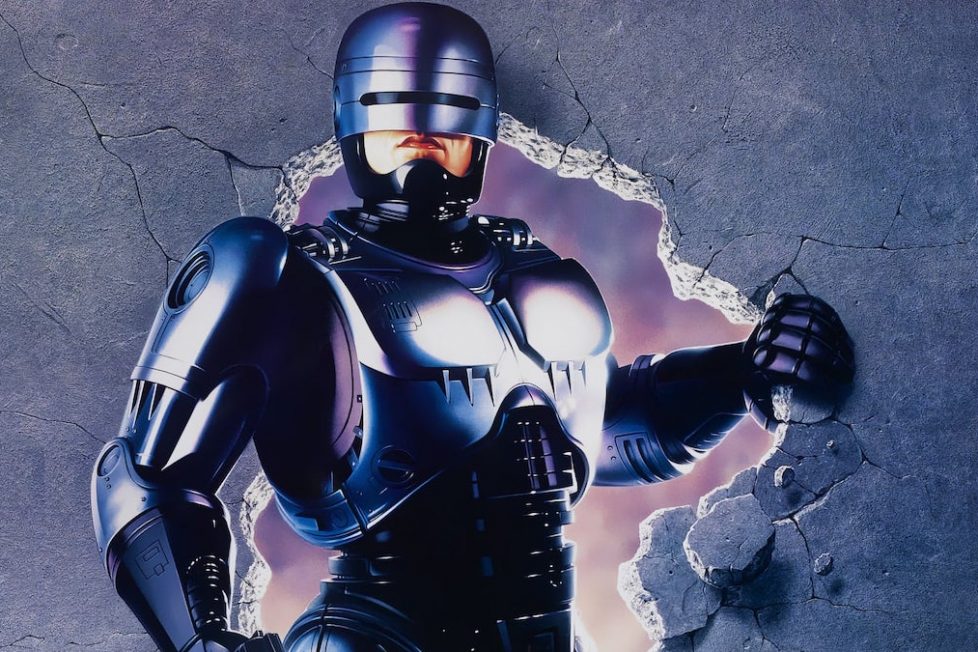
Cyborg law enforcer RoboCop returns to protect the citizens of old Detroit but faces a deadly challenge when a rogue OCP member secretly creates a new, evil RoboCop 2.


Are all (Robo)cops bastards? When I chose to do a retrospective on RoboCop 2, I thought nothing of this sequel to a classic: it was louder, flashier, and a lot dumber. But RoboCop 2 has become shockingly prescient in 2020, aside from the absence of actual cyborg policemen.
Returning to the near-future dystopic Detroit, ‘killed in action’ cop Alex Murphy (Peter Weller) is still struggling against his programming as RoboCop. The mega-conglomerate Omni Consumer Products (OCP) is #defundingthepolice to buy the city wholesale, while cult leader Cain (Tom Noonan) has effectively already done so with the highly addictive street drug ‘Nuke’. RoboCop’s toughest battle will also include his own replacement, as OCP is trying to bottle lightning twice (a moment of meta-commentary?) to manufacture a superior ‘RoboCop 2’.
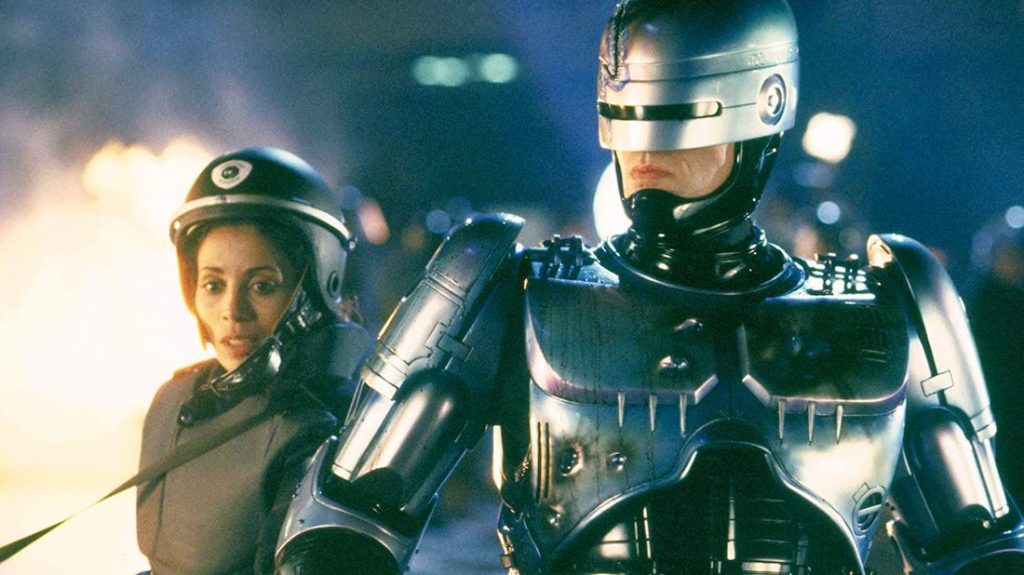
When trying to replace a director as formidable as Paul Verhoeven it’s wise to pick someone who’s already made a successful sequel to a major hit; so step forward Irvin Kershner, who directed Star Wars: The Empire Strikes Back (1980). Tasked to deliver a decent sci-fi action-adventure, Kershner may have been too safe a choice, as he’s reported to have toned down the screenplay considerably—to the chagrin of the other big-name behind this film, writer Frank Miller. The comic-book legend responsible for reinventing Batman and Daredevil in the 1980s, and for providing the source material for later blockbuster hits like Sin City (2005) and 300 (2006). His own solo directorial effort, The Spirit (2008), wasn’t received nearly as well.
If not satirical, Miller is certainly an edgy writer. He wrote the self-described propaganda 2011 comic-book Holy Terror, pitched as “Batman versus Al-Qaeda”, which even he came to deride as falling into the anti-Islamic cultural fervour. In 1986’s The Dark Knight Returns and even Robocop 3 (1993), Miller’s heroes take to the streets with the masses in revolt… and yet he labelled Occupy Wall Street as “nothing but a pack of louts, thieves, and rapists”. Emotional writers create emotional work, but Miller borders on reactionary, which makes Robocop 2 all the staler in the myriad of unfocused commentaries.
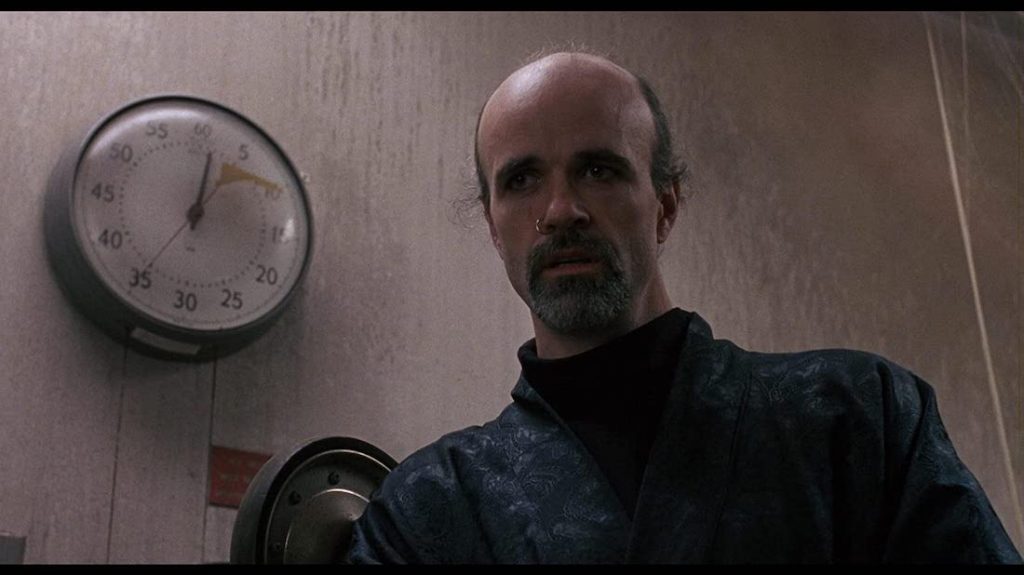
Maybe because Miller wrote eight drafts and was rewriting dialogue on-set for the actors, Robocop 2 contains moments of pointed satire that are mired in the conventions of a Rambo sequel. The corporations privatising public services (undermining the police in hopes of a programmable military force in their own interests), remains from the original… but now they’re pitted against the cartoonish Nuke-peddling army whose lieutenant is a 10-year-old boy called Hob (Gabriel Damon) torn from the nightmares of Nixon and his war on drugs. Counting Cain, Hob, Dr Faxx (Belinda Bauer), and the eventual birth of the “Robocop 2” metal menace, that’s four villains which the script clumsily sends RoboCop back and forth between.
The first act is standard cops-vs-drug-dealers fare, in which RobCop is trashed and OCP decides this is the chance to reprogram him: increasing his basic three prime directives to over three hundred because it’s hilarious that a police officer should follow so many rules. Verhoeven’s film glided by with Murphy’s personal revenge story against the criminals that mutilated him… but, in the sequel, RoboCop is just doing his job. Being made to appear friendlier to the public rather than a stone-cold judge-jury-executioner is portrayed with such a tone-deaf snark that I half-expected OCP to claim “this is what the liberals want.”
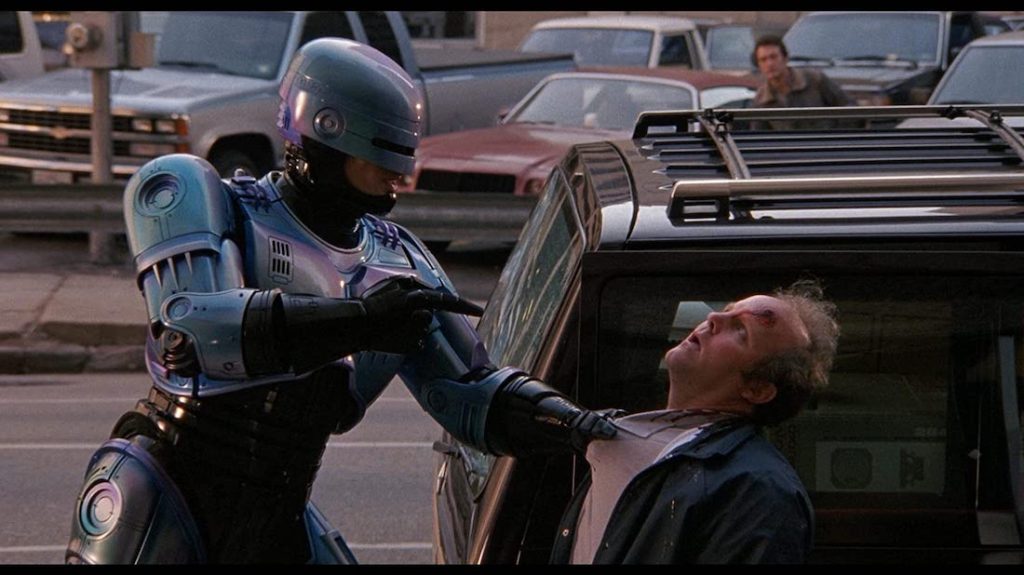
If it seems political, my criticisms with Robocop 2 are primarily down to how much is included only to go unexplored. Attempting to continue the blurred dynamic between Murphy and RoboCop, he also stalks his own widow, who’s been told by OCP that her husband is dead and this machine simply honours him (by ghoulishly wearing his death mask?) There’s a rare moment of heart as Murphy realises he can’t now provide his family with the loving husband and father they once knew, so decides to lie to his wife about Murphy indeed being gone. What underwhelmed me is that two interesting areas (the excessive directives and Murphy’s widow) last around 10-minutes of total screentime, both getting resolved far too quickly, simply because the majority of the runtime had to deliver gunfire and explosions.
The action is impeccable if numbing at times. ED-209’s excessive force in RoboCop was effective because those bouts of blood and bullets were so unexpected. But audiences in 1990 now expected graphic violence, so when Cain’s brain is eventually installed into RoboCop 2 (why would they think a criminal’s mind behave when a decent officer like Murphy didn’t?), that chain-gun chewing through bodies effect is repeated to the point of tedium. Forget the entire turf war between OCP and Nuke because now there’s an evil robot for RoboCop to fight. Forget that OCP went from callous ideology to trying to assassinate the Detroit council. Miller may claim that comic-books have no place for outdated concepts like Good vs. Evil, but whenever The Dark Knight Returns is adapted the only thing people care about is how Batman is going to beat Superman.
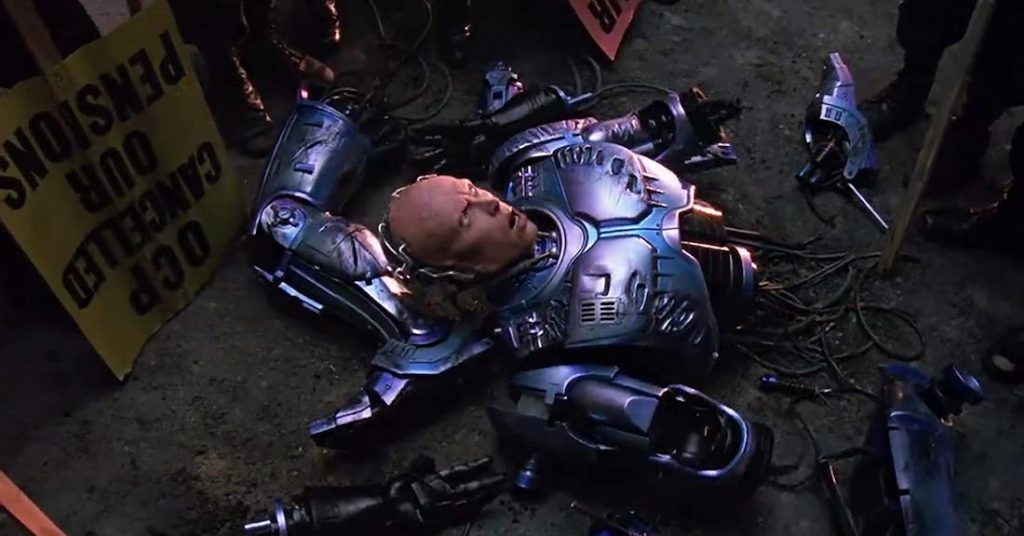
To quote Ian Miles Chong, “sometimes I just want to shut my brain off and enjoy having fun instead of turning everything into a political thesis”. Seeing RoboCop hang precariously off the front of a rampaging truck as Cain batters him by driving through entire buildings is certainly fun… shooting a sniper through the scope and into his eye is awesome… and the shockingly good stop-motion brawl between robots at the climax is exceptional entertainment. Hell, to promote the movie RoboCop himself appeared on a WCW pay-per-view event to rescue the wrestler Sting from a steel cage… which is incredible.
But as a retrospective… the unintentional satire here is overwhelming. I watch RoboCop literally electrocute himself to escape the oppressive orders from his bosses, in a world where police are mandated to wear bodycams but have the freedom to turn them off. I watch police strike as The Man cuts their pay in a world where New York City spends 40% of their annual budget on police (more than health, homelessness, youth development, and workforce development combined), and rallying Joe Biden calls for an extra $300M for police in the US. I watch RoboCop inspire those protesting cops to take up arms once more and lay siege to the base of a drug lord in a world where a 75-year-old man is pushed over by a cop, fracturing his skull, and because the two cops responsible faced consequence an entire 57 members resigned in support for them.
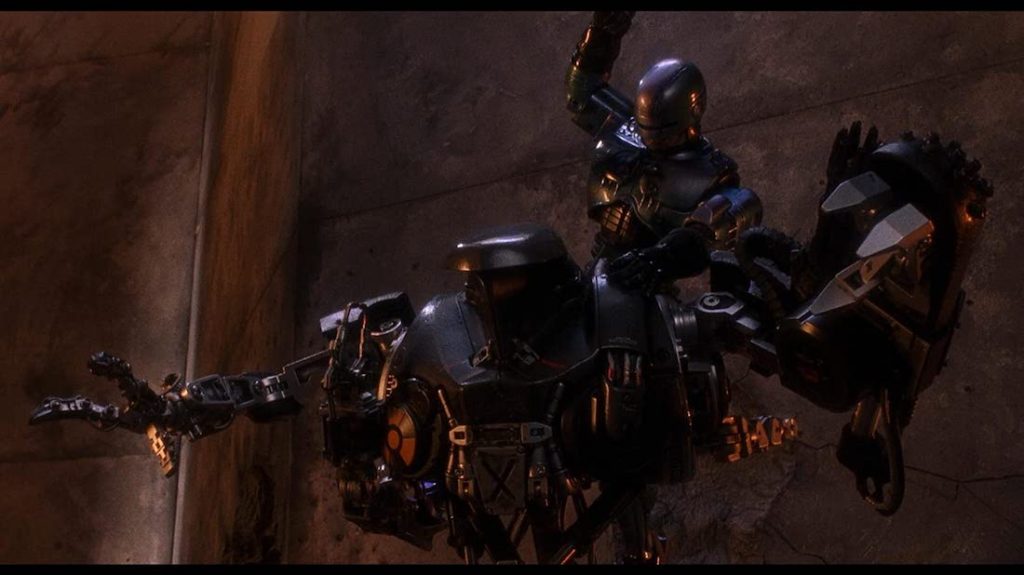
Nevertheless, on budget of around $25M, it grossed $45M at the box office and a further $22M on VHS, making Robocop 2 a clear success. With another sequel after this (which everyone agrees was the worst of the three), some made-for-TV movies, an animated series, video games, a 2014 remake, and a proposed canonical sequel in development (hell)… RoboCop is undoubtedly an enduring pop culture icon. But one that battles against its own programming.
There’s an unshakable dissonance when RoboCop serves in a city where only the bad guys say ‘fuck cops’, and it’s a different political landscape today. Back in the early-1990s, in the war against the 1%, the police were with the common people, and the threat of them being bought out and used against us was as fantastical as a robot cop. But to reference a quote Chong is more famous for, “I bet you think RoboCop is ‘political'”.
USA | 1990 | 117 MINUTES | 1.85:1 | COLOUR | ENGLISH

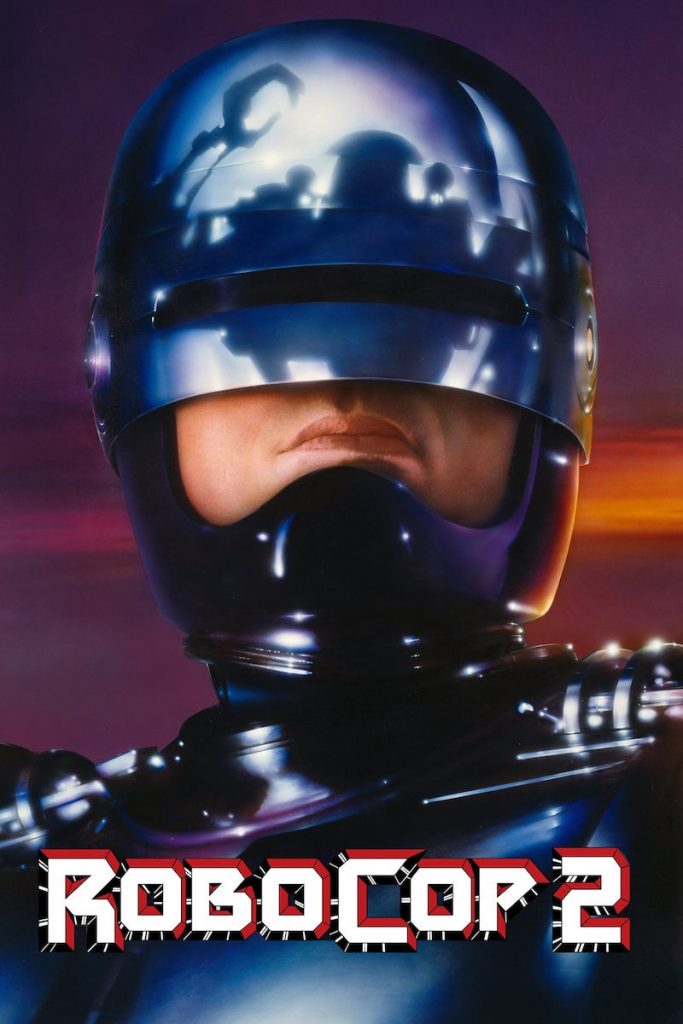
director: Irvin Kerschner.
writers: Frank Miller & Walon Green (story by Frank Miller, based on characters created by Edward Neumeier & Michael Miner).
starring: Peter Weller, Nancy Allen, Daniel O’Herlihy, Tom Noonan, Belinda Bauer & Gabriel Damon.
